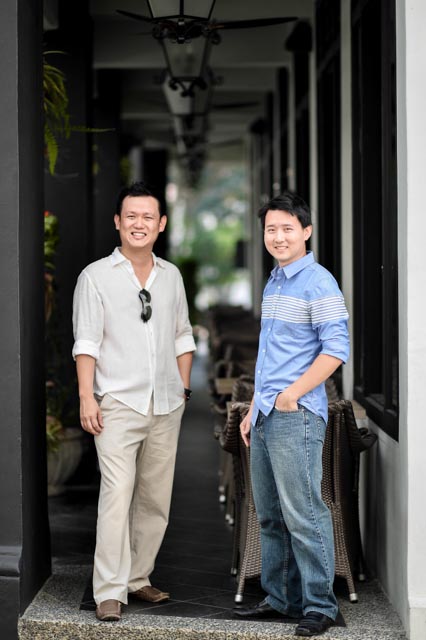James Chua, (co-founder of PandaBed along with Lester Kang) spoke to Crowdsourcing Week about PandaBed – a startup marketplace that offers a wide range of accommodation option for travelers to Asia. Even though collaboration and cooperation is rooted in Asian culture, the emergence of business models built on these principles is in its infancy.
James and Lester will participate in the 2nd Annual Crowdsourcing Week Global 2014 conference in Singapore from April 7-11. Join them and other globally renowned speakers, panelists and attendees at CSW Global’14. Day 2 of the conference on Wednesday, April 9, will focus on Transforming Efficiency for Social, Environmental and Economic Benefit , highlighting the in-and-outs of using crowd-driven solutions to reduce resource consumption and better our citizen services, our cities, the environment, and improve bottom lines. Register here
1) Tell us about PandaBed and the story behind it?
The company was started by me (James Chua) and Lester; we are both Singaporeans. We met in 2001 in Los Angeles while we were both in university. Shortly after getting acquainted, we started traveling together to the U.S, Europe and Mexico. As a student, I was poor as a church mouse, but the desire to see more drove me to travel; it was the same with Lester. When we hit the road, we stayed in a mixture of backpacker joints, BnBs, homestays and friends of friend’s homes.

Years later, when we returned to Singapore, we started traveling around the region. While planning for the trip, we immediately noticed that it was difficult to search for Asian BnBs, homestays and vacation homes online. It was easy searching for hotels, but we were looking for something homey, unique and value-for-money. I think the epiphany to start the company came when we took some friends along to one of our “spontaneous-trips”; these “hard-core hotel goers” really gushed about the experience. The idea started simple – We wanted to make it easy to connect to BnB’s, homestays and vacation homes in Asia.
2) What are some of the challenges in building a two-sided marketplace, especially in Asia and how are you tackling it?
The challenges are:
- Building trust
- Grow supply of quality homes across Asia
- Grow demand
Building a 2-sided marketplace in Asia is fundamentally similar to a Western 2-sided MP (See Amazon, Taobao). However building a 2-sided peer-to-peer marketplace in Asia is a massive puzzle that no one has quite cracked yet; the difference is the P2P part. Necessary conditions for all P2P marketplaces to thrive are trust, respect, and transparency. However Asians accept distrust of each other, lack-of-respect and opacity as a way of life. There is not the same Western ideal to create a democratic level playing field. The challenge for us (really anyone) involved in Asia P2P is in creating an environment…a culture of trust and openness amongst participants. It might not be the Western version of trust and openness, but Asia’s unique version.
3) Tell us more about your Reliability Merit system.
The Reliability Rating is our vacation home scoring system. It rates properties from 0 to 20 based on how “Reliable” a particular home and its Host are. It is a “quick-and-dirty” way to evaluate the trust-worthiness of a vacation rental listing.
4) You are deeply involved in the collaborative consumption business model. What kind of growth have you seen in Asia in willingness to adopt principles of “sharing”?
At the moment it is at the early-adopter stage. I see pockets of risk-taking individuals who practice and believe in it but there is still too much social pressure to conform that counteracts mainstream adoption. There is a lot more work that needs to be done to spread CC and the thinking patterns that go along with it.
5) What are your future plans to expand PandaBed?
All future plans can be summed up as: Build supply & Build demand. We want to make the sharing economy sexy. We want to create a platform which travelers in Asia use as the defacto source to connect to trusted vacation homes. Individuals from all social-economic-ethnic-religious backgrounds use it to make bookings during their travels in Asia Pacific.





0 Comments